One of the main sources of nutrition for small wild birds is worms. Particularly for songbirds like the magpie, sparrow, robin, and koel. They possess some exceptional methods for finding and consuming worms.
So how do birds find worms? The search for worms is part of the birds’ food-hunting process. They scan the ground with their feet. Once they catch one, they kill it with their beaks and eat it.
The hearing, smelling, and feeling of worm-eating birds are exceptionally acute.
Besides, birds have fairly good memories, so they can recall where they can find worms. But not all birds eat worms; in this article, we discuss which species do and which species do not.
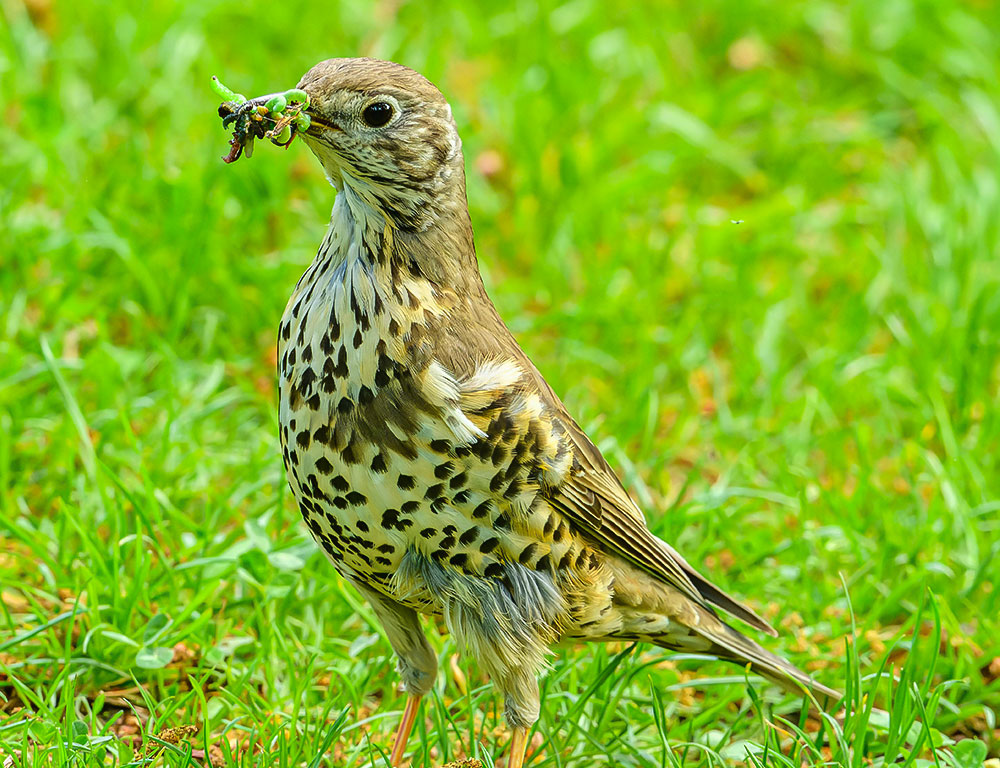
How Do Birds Find Worms?
In particular, birds know where to look for worms. They choose a spot and begin scanning the area around the feet. Birds’ feet are incredibly sensitive, and they react quickly to vibrations.
They also have very sharp hearing in addition to their feet and can easily locate worms using these two things. So they start probing the ground with its beak once they find one.
And, a hunter who gets up early typically has a high chance of picking up worms. Mealworms are a great source of protein for your birds when the birds are living in the wild. Worms move closer to the surface of the ground in the morning.
Birds are inherently intelligent animals. They understand the location of their food. So they search for an area that is wet and close to ponds, lakes, rivers, or other bodies of water.
How Many Worms Can a Bird Eat A Day?
To begin with, not all birds consume worms, and second, not all birds who eat worms have the same ability to consume worms. So it is tough to answer the question.
For example, an American robin can consume 15 to 20 worms per hour. The same is true for seabirds, who live near the sea and rivers and thus have easy access to worms.
Songbirds, on the other hand, typically consume insects, but they also prey on worms. Compared to songbirds, seabirds consume fewer worms.
However, the highest worms are eaten by blackbirds, robins, and song thrushes. They can consume 20% of their body weight in worms. Along with seeds, vegetables, and grains, worms are one of their main food sources. A bird can eat over 100 worms daily if it knows how to locate them.
What Birds Do Not Consume Worms?
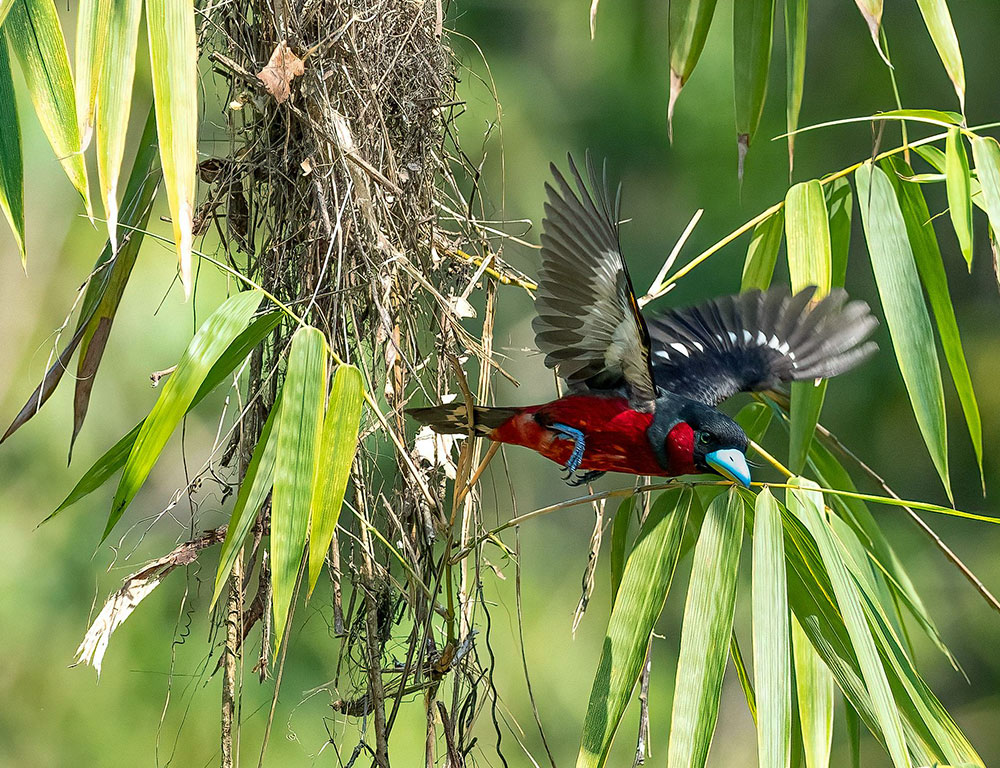
People believe that all birds eat worms, which is a complete myth. Not all birds consume worms. Even the percentage is lower for worm-eating birds. Birds that do not consume worms are fine eating their regular diet unless they are in danger.
All of the big predators, such as eagles, owls, hawks, and falcons, never eat worms; instead, they stick to their regular diet.
What Are The Worm-Eating Birds?
Perching birds are basically known as worms eaters. The American Robin is the bird that consumes the most worms. They are the world’s most voracious worm eaters. They can find and eat 20 worms per hour.
Other worms eating birds are
- American Woodcock
- Black-tailed Godwit
- Black-bellied Plover
- Clapper Rail
- Eastern Screech-Owl (Not all owls are worm eaters)
- Eurasian Blackbird
- Killdeer
- Malayan Night Heron
- Sora
Wild doves and pigeons eat worms and mealworms as well.
How to Assist Birds in Finding Worms?
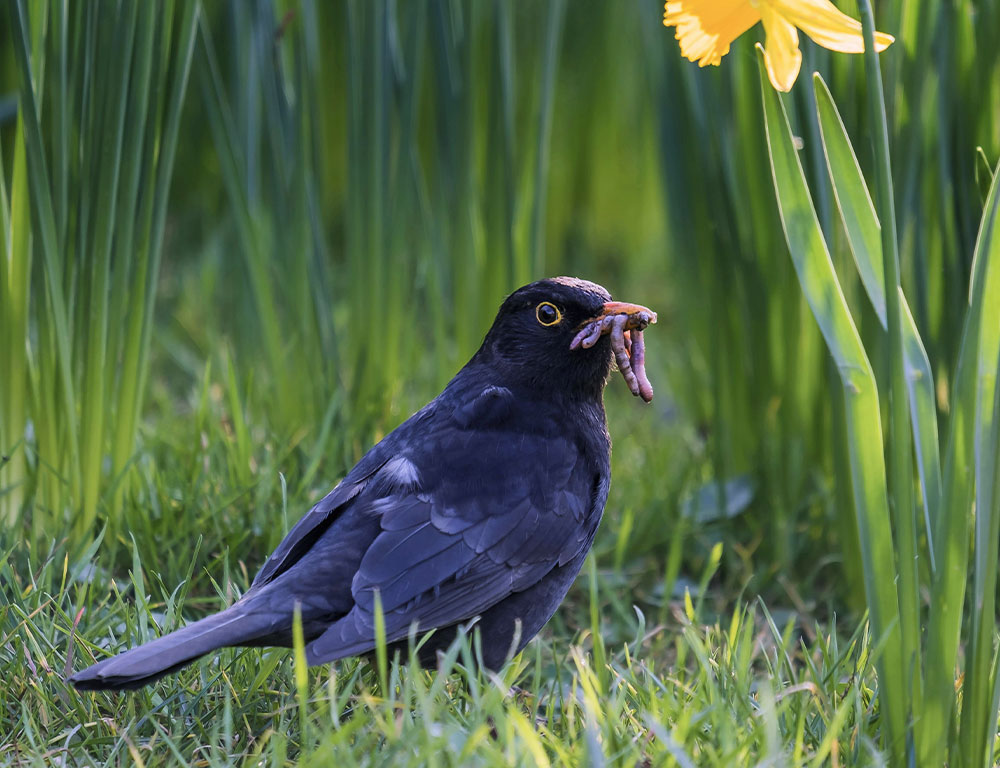
It’s not as if worms are restricted to lakes, ponds, and rivers. In the vicinity of your home, worms also live in decaying matter. The damp earth and green moss in the garden are also where it lives. If you keep house pets, you can assist them in finding worms in the backyard.
Here is what you can do.
Keep the grass shorter
Your backyard areas are the nearest place where your bird can search for worms. Therefore, keep the grass on the lawn evenly trimmed and shorter. This will help your bird to track down worms and insects too.
Your lawn and garden should be aerated
If your area is not conducive to worms, they won’t come. It implies that the location must be suitable for them. Aeration is what keeps the balance of soil water uptake and makes the soil soft. So regularly aerate your area to attract more worms and increase the resilience of the soil.
Regularly water your lawn and garden
In the dry area, your bird won’t find any worms.
Worms will rise to the surface to attach to the sogginess, which is why the lawn needs to be wet. Therefore, it would be ideal if you water the area early in the day and let the birds go on their morning hunt.
Always keep your lawn clean
Fallen leaves, especially wet ones, can thin out your lawn. Additionally, it blocks sunlight from reaching your turf and stops airflow. In order to grow plants, it is, therefore, crucial to clean the area. More worms will move into the area once your lawn or garden starts to flourish.
Additionally, your bird will have no trouble finding worms right away.
Adaptations for Worm Hunting
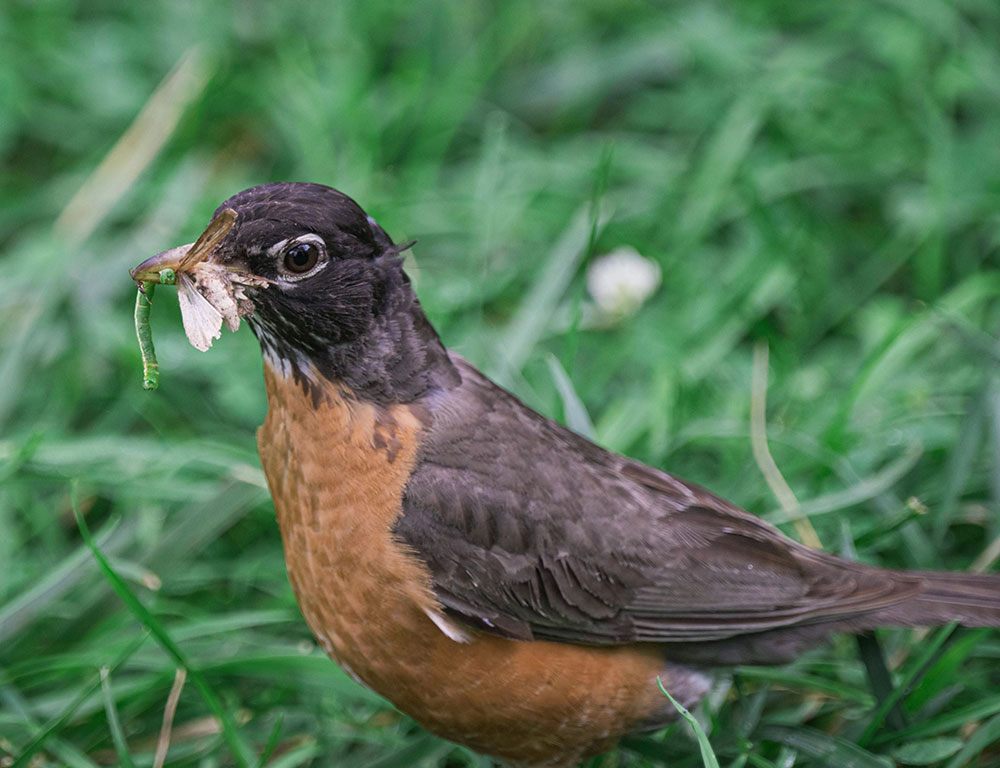
Birds possess an impressive set of adaptations that assist them in their quest to find worms. Their exceptional abilities have evolved over millions of years, allowing them to become efficient worm hunters.
One remarkable adaptation is their keen sense of hearing. Many birds, such as robins and starlings, can actually hear the sounds made by worms as they move through the soil.
This skill becomes particularly handy during early morning hours when it’s quiet and the sounds of wriggling worms are more distinguishable.
Another important adaptation is their sharp vision. Birds’ eyes are equipped with a high number of photoreceptor cells, enabling them to detect tiny movements on the ground surface associated with worm activity.
They’re also capable of perceiving small changes in color and pattern, which helps them spot worm casts – the little mounds of earth left by burrowing worms.
Let’s not forget about their specialized beaks too! Bird beaks come in diverse shapes and sizes tailored to their feeding habits. For instance:
-
Robins have thin, pointed beaks perfect for probing into soft ground.
-
Starlings boast long, slender beaks adept at prying open soil cracks.
-
Thrushes sport robust, curved beaks suitable for breaking up hard ground.
Furthermore, some bird species utilize a hunting technique known as “foot trembling”. By rapidly shaking one foot on the ground surface while keeping their body still and head tilted downwards, they’re able to mimic rainfall vibrations that entice earthworms to emerge from below.
In short, birds employ a combination of hearing acuity, visual prowess and physical adaptations in order to locate and capture worms efficiently.
These adaptational traits make them fascinating subjects within wildlife biology studies due to their intricate interactions with nature’s underground life forms.
Why Do Birds Seek Out Worms After Rains?
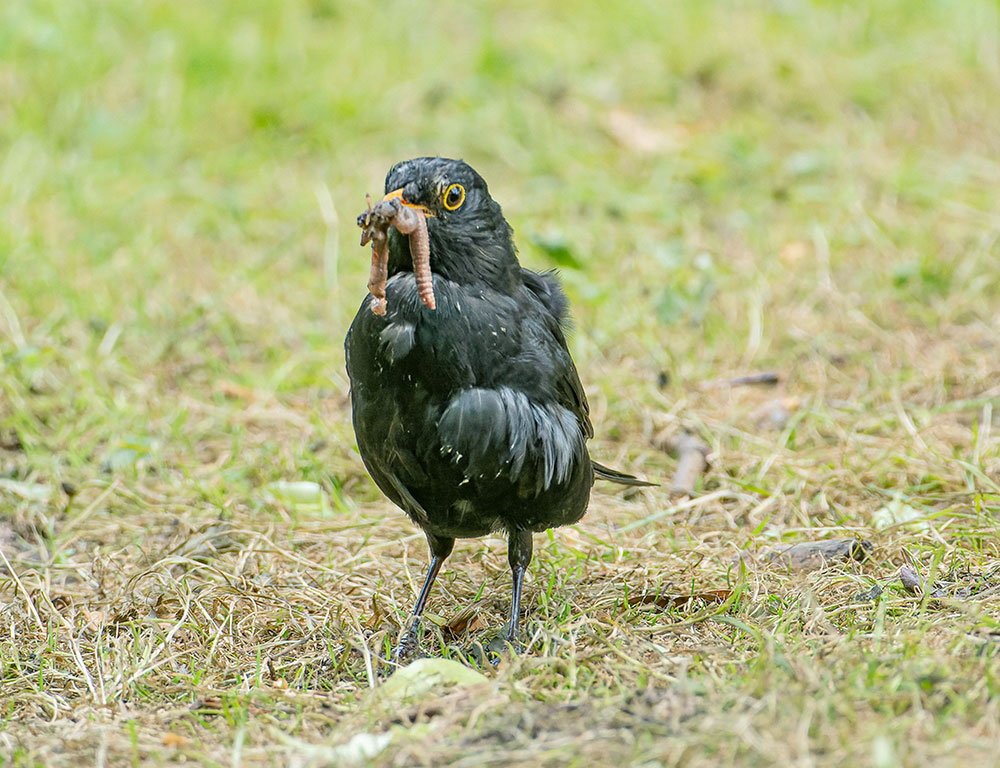
As previously stated, birds are extremely intelligent animals. They know that the worms will emerge from their underground burrow after rain. Worms come out of holes during rain because they can’t get enough oxygen when the soil is flooded.
As a result, their exits are caused by breathing. The same holds true for insects. Birds, on the other hand, take advantage of this. This post-rain period is one of their best times for hunting.
FAQs
Read this section with some frequently asked questions to get more information on how birds find worms.
No. Worms are not on their list of acceptable foods. They mostly eat fresh fruits, vegetables, leafy greens, grains, and seeds. Parrots sometimes eat mealworms, and their children have also been observed to eat mealworms.
But unlike American robins, they don’t typically eat worms.
No. Eating dried-up or dead worms poses no threat to them. Worms can be consumed in various states, including dry, dead, and alive. Though they enjoy eating them alive, birds can also get their needs met by dead worms.
However, the nutrition won’t be compromised if you make bird meat from dead worms.
If your bird belongs to the worm-eating species, it will love to eat worms every day. However, if it doesn’t, it won’t touch them. If it doesn’t eat too much, having worms every day poses no health risks.
Worms make an excellent meal for them because they contain 50%–60% protein, 6%–10% fat, and 5%–20% carbohydrates.
Final Words
By now, you probably understand how birds find worms. Those birds who eat worms know especially techniques to locate them. Basically, birds are extremely sensitive creatures; they have keen hearing, strong senses of smell, and intense feelings.
Additionally, they are aware of the locations where the worms reside or hide, so they quickly scan the area and begin their hunt. However, not all birds are skilled worms hunters because not all birds consume worms. Seabirds and songbirds are the most adept at it.